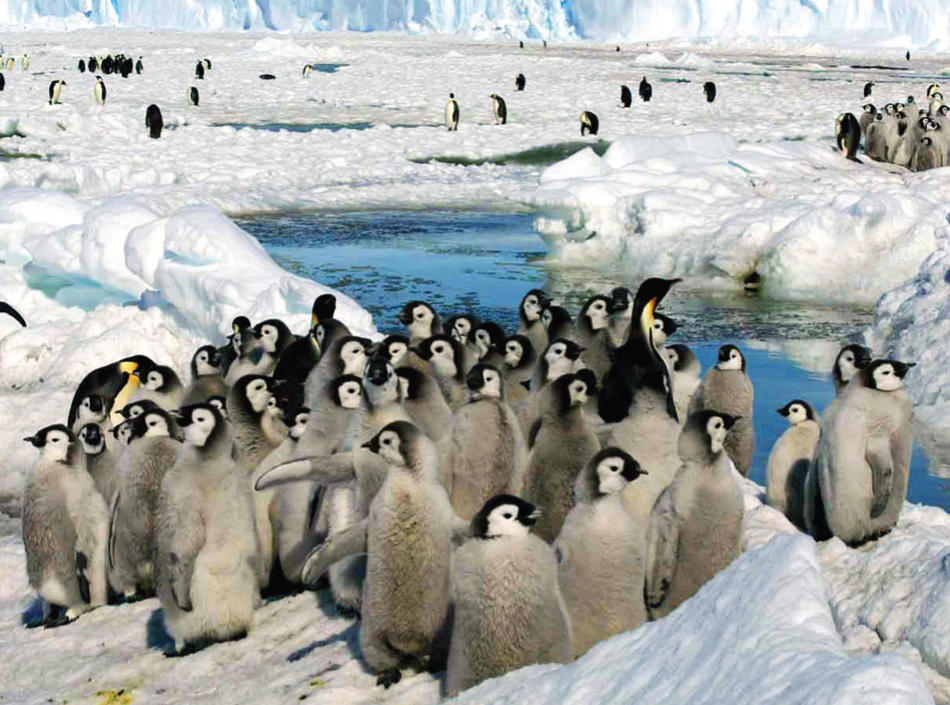Study Links Thousands of Ecological Changes to Human-Induced Warming
Mainstream climate scientists have been in agreement for at least a decade: Global warming is real and it’s almost certainly caused by pollution. What exactly are its effects? That’s more difficult to say because animal populations and ocean currents, for example, are dynamic systems that respond to innumerable forces.
A new study led by Cynthia Rosenzweig, a Columbia senior research scientist, has provided the most comprehensive answer to date. Her paper is “the first to formally link” specific instances of environmental disruption to greenhouse gas emissions, wrote the editors of Nature upon publishing the findings May 15. Scientists from 10 countries worked on the project.
The researchers examined 80 previous studies that had monitored 29,000 natural systems between 1970 and 2004. Most of the studies examined the impact of climate change on plants and animals; others looked at its impact on land, water, and ice. All of the phenomena were monitored for at least 20 years.
Rosenzweig and her colleagues first counted how many of the 29,000 natural systems had changed in ways consistent with warming. Based on the conclusions of the original authors, 90 percent of the biological systems showed the effects of rising temperatures, such as penguins dying off, as did 95 percent of the physical systems, like glaciers melting. “You wouldn’t expect a 100 percent correlation across all these studies,” explains Rosenzweig, “because members of an animal species, given their genetic variations, for instance, won’t respond to warming all in the same way or at the same time.”
The next part of Rosenzweig’s study is the breakthrough: She and her collaborators plotted the location of every instance of ecological disruption and noted the local temperature trends since 1970. Her team then analyzed the average temperatures against computer models that calculate the natural climate variability for any spot on the planet, for any year.
The results are staggering. Ecological damage occurred almost exclusively in places where highly unnatural levels of warming were recorded in recent decades. Rosenzweig’s team also considered information from the original studies regarding habitat destruction, overfishing, land and water pollution, and other complications to determine if these factors might have contributed to the ecological damage. But they generally had little impact. In the end, Rosenzweig concluded that just 10 of the roughly 26,000 documented cases of ecological damage could be explained by factors other than warming.
The extreme warming in these areas could only have been caused by greenhouse gas emissions, wrote Rosenzweig and her colleagues, all of whom worked on last year’s 3000-page report of the U.N. Intergovernmental Panel on Climate Change (IPCC). That study, produced by 1000 leading climate scientists, stated with at least 90 percent certainty that the burning of fossil fuels is the primary cause of rising temperatures worldwide.
“Now we’ve closed the loop by linking the warmer temperatures to specific impacts,” says Rosenzweig. She and the other IPCC scientists shared the 2007 Nobel Peace Prize with Al Gore. “Why should we care about global warming?” she says. “Now we can answer that question very specifically.”
Among the effects of global warming, finds the Nature study, is early leafing and flowering of 89 plant species in North America, changes in bird migrations across Europe, the decline of polar bear and penguin populations, and the movement of hundreds of animal and plant species worldwide to higher altitudes and toward the earth’s poles. Other effects include the melting of glaciers, especially in Peru, Alaska, and the Alps; the thawing of permafrost in Russia, which threatens to release into the atmosphere huge concentrations of carbon now frozen underground as mulch and animal bones; and the quicker melting of mountain snowpacks on most continents every spring, which initially causes floods, and later, droughts.



